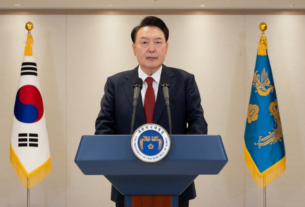U.S. Treasury Secretary Scott Bessent has pledged to revitalize the private sector, citing underlying fragility in the economy. In his first major policy address on February 25, 2025, at the Australian embassy in Washington, Bessent outlined plans to reduce government spending and regulation.
“The previous administration’s over-reliance on excessive government spending and overbearing regulation left us with an economy that may have exhibited some reasonable metrics but ultimately was brittle underneath,” Bessent stated. He attributed persistent inflation and a weakened private sector to these policies.
Bessent highlighted that 95% of job growth in the past year occurred in public sectors like healthcare and education. These sectors often offer slower wage growth and lower productivity compared to private industries.
Conversely, sectors such as manufacturing, metals, mining, and information technology have seen stagnation or decline. This trend indicates a recession within the private sector, according to Bessent.
To address these issues, the administration plans to slash regulations and extend tax cuts. These measures aim to stimulate private sector growth and reduce dependence on public employment.
Bessent also discussed the strategic use of tariffs to bolster U.S. industrial capacity. He believes tariffs can protect domestic jobs, enhance national security, and generate government revenue.
“Tariffs can increase U.S. industrial capacity, create and protect U … ,” Bessent explained. He emphasized that tariffs could also correct economic imbalances and deter overproduction in countries like China.
The administration is evaluating various factors to determine appropriate tariff rates. These include other countries’ tariff policies, non-tariff barriers, and currency practices.
Regarding trade relations, Bessent mentioned ongoing discussions with partners such as Australia. While Australia seeks exemptions from certain tariffs, final decisions will involve multiple departments.
Bessent’s remarks underscore a shift toward empowering the private sector. The administration aims to create a more resilient economy by addressing underlying vulnerabilities.
You may notice changes in economic policies affecting various industries. Staying informed can help you understand potential impacts on employment and investment opportunities.
The proposed policy changes are expected to influence both domestic and international economic landscapes. Businesses and consumers alike should prepare for adjustments in trade practices and market dynamics.
As the administration implements these strategies, monitoring their effects on economic stability will be crucial. The success of these initiatives may redefine the balance between public and private sector roles in the U.S. economy.
In summary, Secretary Bessent’s address signals a commitment to revitalizing the private sector. Through regulatory reforms and strategic tariffs, the administration seeks to strengthen the economy’s foundation and reduce its fragility.




